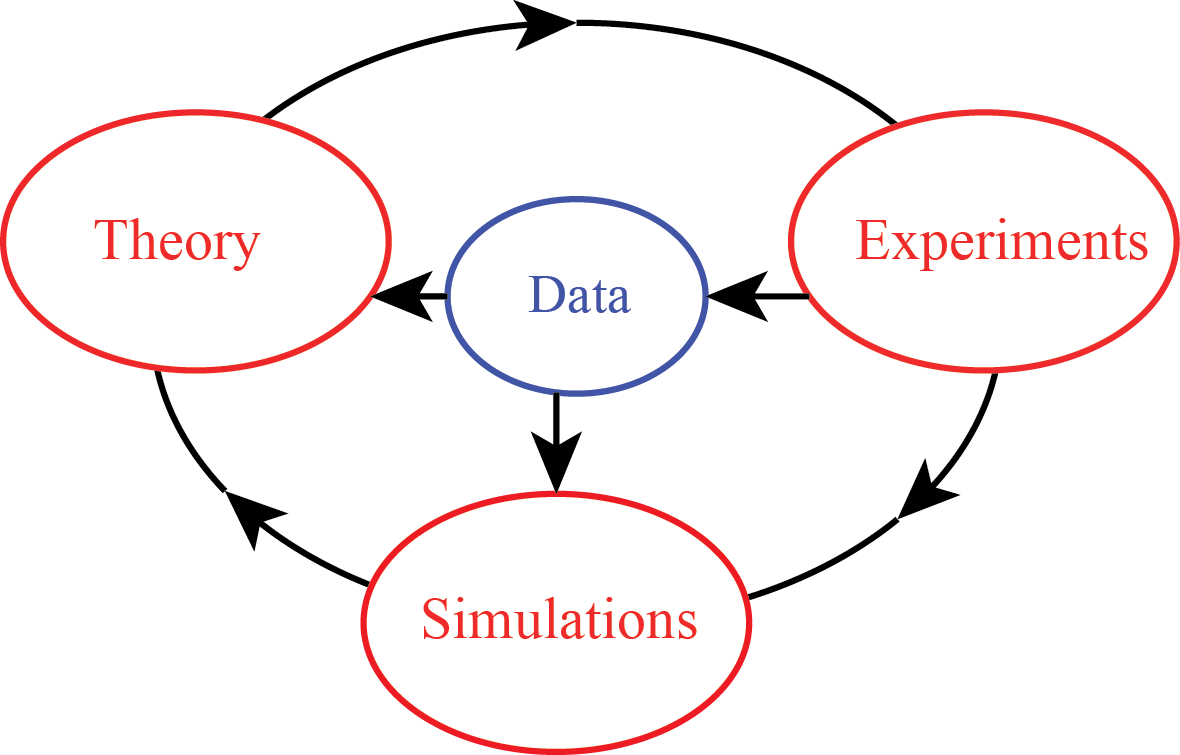|
|
Modeling and Data Analysis in Life Sciences: 2017
Aims and Objectives
|
This module aims at providing students with concepts and general techniques that are essential for modeling, analyzing and visualizing data as well as for testing and validating models, with applications in the domain of biology. Upon completion of the module, the students will be able to appreciate the use of Mathematics and Scientific Computing in Biophysical Sciences. They will also be proficient with MATLAB, a data analysis package that will prove useful for their research projects.
|

|
My goals are to help you to:
- Understand what data means
- Formulate and assess hypotheses
- Perform simulations
- Learn a data analysis package, MATLAB
Format
Students enrolled in this module will participate in an intensive boot camp like workshop over a period of two weeks. This boot camp will include:
- Six lectures on mathematical concepts for data analysis and modeling
- Six practical sessions on applications in biology, using MATLAB.
Schedule:
|
Week 1: August 28- 31 |
|
Monday |
Tuesday |
Wednesday |
Thursday |
Friday |
| 8:00 - 10:00 |
Lecture 1
Tools of the Trade |
Lecture 2
Data: Statistics |
|
Lecture 3
Data Modeling |
|
| 10:00 - 12:00 |
|
|
|
|
|
| 12:00 - 14:00 |
|
|
|
|
|
| 14:00 - 17:00 |
Lab 1
Getting to know Matlab |
|
Lab 2
Graphing and Programming |
Lab 3
Data analysis and Modeling |
|
|
Week 2: Sept 04-08 |
|
Monday |
Tuesday |
Wednesday |
Thursday |
Friday |
| 8:00 - 10:00 |
Lecture 4
Fourier analysis |
Lecture 5
Clustering |
|
|
Lecture 6
Simulations |
| 10:00 - 12:00 |
|
|
|
|
|
| 12:00 - 14:00 |
|
|
|
|
|
| 14:00 - 17:00 |
Lab 4
Fourier analysis |
|
Lab 5
Clustering data |
Lab 6
Monte Carlo simulations |
|
Academic Conduct
The rules for conduct in classes can be summarized with three principles:
- Be polite.
- Don’t cheat.
- Don’t lie.
Be polite
As adults meeting in a professional context, we should all behave professionally: this means being polite and respectful to everyone we deal with.
As the instructor, it is my responsibility to teach as well as I can and to be available, polite and respectful to you.
You are responsible for treating me and your fellow students politely and with respect.
Don’t cheat
As the instructor, it is my responsiblity to make assignments that are fair, to grade fairly, to look for cheating, and to refer students who cheat to Student Judicial Affairs for possible sanctions.
As students, it is your responsibility to avoid cheating and to discourage other students from cheating.
Don’t lie
Cheating is one form of lies, but there are other. Manipulating data, false
claim of ownership of an assignment/idea, plagiarism are all forms of lies.
Do not lie to the instructor, and even more importantly, do not lie to yourself!
|





